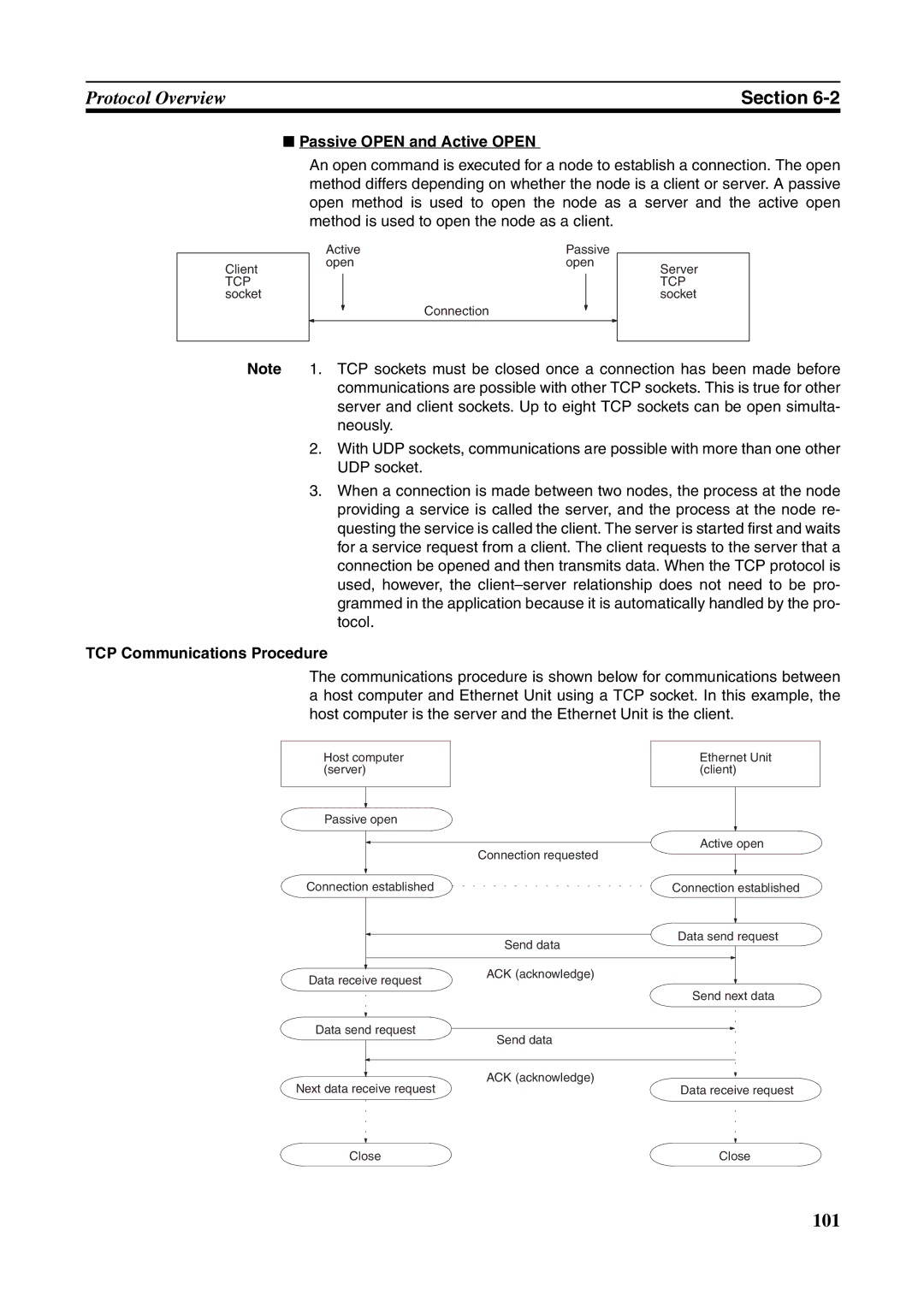
Protocol Overview | Section |
■Passive OPEN and Active OPEN
Client
TCP socket
An open command is executed for a node to establish a connection. The open method differs depending on whether the node is a client or server. A passive open method is used to open the node as a server and the active open method is used to open the node as a client.
Active | Passive |
|
open | open | Server |
|
| |
|
| TCP |
|
| socket |
| Connection |
|
|
|
|
Note 1. TCP sockets must be closed once a connection has been made before communications are possible with other TCP sockets. This is true for other server and client sockets. Up to eight TCP sockets can be open simulta- neously.
2.With UDP sockets, communications are possible with more than one other UDP socket.
3.When a connection is made between two nodes, the process at the node providing a service is called the server, and the process at the node re- questing the service is called the client. The server is started first and waits for a service request from a client. The client requests to the server that a connection be opened and then transmits data. When the TCP protocol is used, however, the
TCP Communications Procedure
The communications procedure is shown below for communications between a host computer and Ethernet Unit using a TCP socket. In this example, the host computer is the server and the Ethernet Unit is the client.
Host computer (server)
Passive open
Connection requested
Connection established
| Send data |
Data receive request | ACK (acknowledge) |
| |
Data send request | Send data |
| |
Next data receive request | ACK (acknowledge) |
|
Ethernet Unit (client)
Active open
Connection established
Data send request
Send next data
Data receive request
Close | Close |
101
